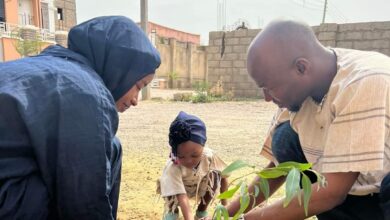CPC Rebels Explain Why They Attacked Humanitarian Convoy in CAR
Weeks after they attacked a convoy conveying humanitarian workers, rebels of the Coalition of Patriots for Change (CPC) said they carried out the attack because there were soldiers on board.

The rebels of the Coalition of Patriots for Change (CPC) have given a reason for attacking a convoy belonging to the UN Office for the Coordination of Humanitarian Affairs (UNOCHA) on Tuesday, March 23.
According to a leader of the rebels in Bakouma, they attacked the UNOCHA convoy because it was carrying soldiers of the Central African Republic army popularly known as FACA.
The attack on the UNOCHA convoy took place in the sub-prefecture of Bakouma, situated 130 kilometres to the north of Bangassou town and 864 kilometres from Bangui the capital of the Central African Republic.
Shortly after the attack, close collaborators of the government accused the UNOCHA of having colluded with the CPC rebels to facilitate the attack.
“When the humanitarian workers arrived aboard nine vehicles in Bakouma, they first started to distribute biscuits to the population. We were at the corner observing them until they finished the distribution. We were already suspecting four individuals who resembled soldiers in one of their double-cabin pick-ups,” said the rebel leader who declined to be mentioned.
“And when the team was preparing to return, we asked them to come to see us, which they did and we asked them whether we could search their vehicle and they accepted.”
“It was at the moment of searching the vehicle that one of the pick-ups which we suspected of carrying soldiers decided to escape towards Bangassou. We said nothing. We continued our search on the other pick-up until we found some military items including ammunition and the team confessed to their actions.”
He said the rebels took the other members of the team in the lone humanitarian truck after the confession, saying, “we asked them to go back.”
The rebel leader disclosed that they took seven humanitarian vehicles without giving further explanations.
According to him, there were nine vehicles, with one truck bearing the World Wildlife Fund (WWF) emblem. Officials of UNOCHA have declined to talk to HumAngle.
Since the March 23 attack, the Central African Republic Ministry of Public Health has decided that all humanitarian agencies must validate their mission warrants with the gendarmerie in Bangui before undertaking any missions.
Since January 13 attempted insurrection in the Central African Republic, international humanitarian non-governmental organisations have been facing serious difficulties in carrying out their activities on the ground both in areas controlled by the government and those controlled by the rebels.
A few days ago, a German humanitarian NGO official was arrested and detained by the government which suspects the German NGO of colluding with armed groups.
Support Our Journalism
There are millions of ordinary people affected by conflict in Africa whose stories are missing in the mainstream media. HumAngle is determined to tell those challenging and under-reported stories, hoping that the people impacted by these conflicts will find the safety and security they deserve.
To ensure that we continue to provide public service coverage, we have a small favour to ask you. We want you to be part of our journalistic endeavour by contributing a token to us.
Your donation will further promote a robust, free, and independent media.
Donate Here




